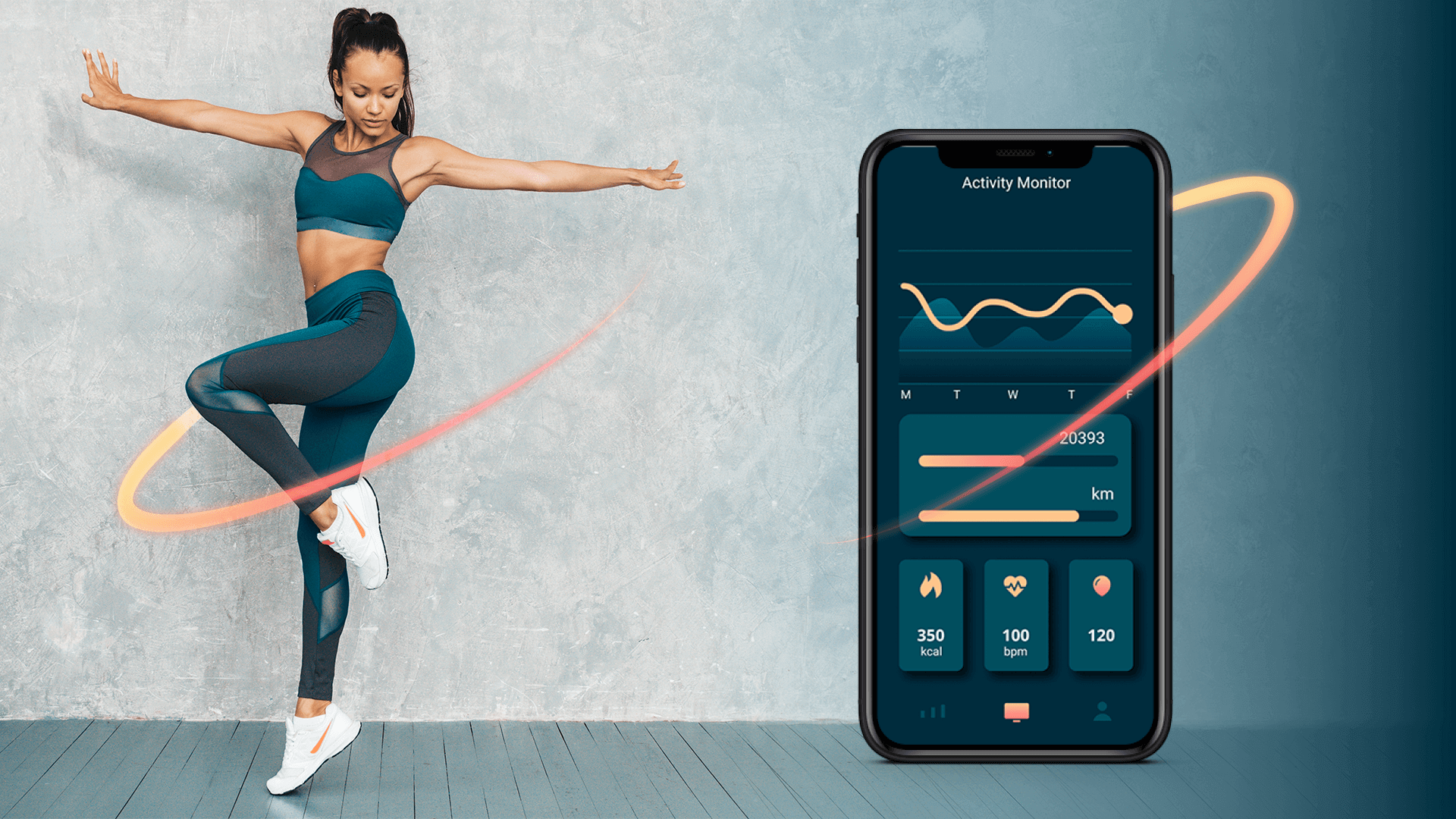In today’s fast-paced world, where time is a precious commodity, maintaining good health and fitness can often be challenging. However, the rise of mobile apps has brought about a significant transformation in the way people approach their health and fitness routines. These innovative applications have revolutionized the concept of self-care by providing individuals with easy access to a wealth of resources and tools right at their fingertips. In this blog, we will explore the importance of health and fitness in our lives, the role of mobile apps in transforming our well-being, and the numerous benefits and conveniences they offer.
Understanding Health and Fitness Apps
A. Definition and Purpose: Health and fitness apps are mobile applications designed to assist individuals in managing their physical fitness, nutrition, wellness, and mental well-being. These apps serve as virtual personal trainers, dieticians, and wellness coaches, aiming to enhance and optimize users’ overall health.
B. Types of Health and Fitness Apps:
- Workout and Exercise Apps: Workout and exercise apps provide users with a range of features and functionalities to guide and track their physical activities. These apps offer a variety of workout routines, step-by-step exercise instructions, and customizable training plans. They also track progress, monitor heart rate, and provide motivation to keep users engaged and accountable. Examples of popular workout apps include Nike Training Club, Fitbod, and 7 Minute Workout.
- Nutrition and Diet Apps: Nutrition and diet apps focus on promoting healthy eating habits and helping users manage their dietary goals. These apps provide access to extensive databases of nutritional information, meal planning tools, calorie tracking, and personalized diet recommendations. They enable users to monitor their food intake, set dietary goals, and make informed decisions about their nutrition. Notable nutrition and diet apps include MyFitnessPal, Lose It!, and Fooducate.
- Wellness and Mental Health Apps: Recognizing the significance of mental well-being in overall health, wellness and mental health apps have gained immense popularity. These apps offer a range of features to reduce stress, promote relaxation, improve sleep, and enhance mindfulness. They provide guided meditation sessions, breathing exercises, stress management techniques, and sleep tracking tools. Prominent examples of wellness and mental health apps include Calm, Headspace, and Sleep Cycle.
Advantages of Health and Fitness Apps
A. Accessibility and Convenience: One of the primary advantages of health and fitness apps is the accessibility and convenience they provide. With just a few taps on a smartphone, users can access personalized workout plans, nutrition guides, and wellness resources anytime and anywhere. This convenience eliminates the barriers of time and location, making it easier for individuals to prioritize their health.
B. Personalization and Customization: Health and fitness apps offer a tailored experience to suit individual needs and goals. Users can input their specific preferences, such as fitness level, dietary restrictions, and desired outcomes, to receive customized recommendations and plans. These apps track progress, provide feedback, and adapt routines to individual capabilities, ensuring a personalized and effective fitness journey.
C. Accountability and Motivation: Staying motivated and accountable can be challenging when pursuing health and fitness goals. However, health and fitness apps address this issue by incorporating various elements to foster accountability and motivation. Gamification features, such as achievements, challenges, and rewards, make the experience more engaging and enjoyable. Moreover, these apps often integrate social features, allowing users to connect with like-minded individuals, join virtual communities, and share achievements, creating a sense of support and encouragement.
Notable Health and Fitness Apps in the Market
A. Fitness Tracking Apps: Fitness tracking apps focus on monitoring and analyzing physical activities, providing users with detailed insights into their exercise routines. These apps track steps, distance traveled, calories burned, and heart rate. They often utilize GPS technology to map routes and offer real-time feedback on performance. Popular fitness tracking apps include Fitbit, Strava, and Google Fit.
B. Diet and Nutrition Apps: Diet and nutrition apps play a vital role in helping individuals make informed choices about their eating habits. These apps provide comprehensive nutritional information for various foods and offer tools for meal planning, calorie counting, and food diary tracking. They can also generate personalized meal recommendations based on individual goals and dietary preferences. Well-known diet and nutrition apps include MyPlate, Yazio, and Lifesum.
C. Mental Well-being Apps: Mental well-being apps cater to the growing need for stress reduction, relaxation, and mindfulness. These apps offer guided meditation sessions, breathing exercises, sleep aids, and anxiety management techniques. They aim to improve overall mental health by reducing stress levels, promoting better sleep, and fostering a sense of calm. Prominent mental well-being apps include Headspace, Calm, and Insight Timer.
Tips for Choosing the Right Health and Fitness App
Identifying Personal Goals and Needs:
- Determine Specific Health and Fitness Objectives: Start by defining your goals and aspirations. Do you want to lose weight, build muscle, improve cardiovascular health, or manage stress? Identifying specific objectives will help you narrow down your choices and select an app that aligns with your desired outcomes.
- Considerations for Selecting an App that Aligns with Individual Goals: Take into account the features and functionalities that are essential for achieving your objectives. For instance, if your goal is to improve strength, look for apps that offer comprehensive workout plans, exercise demonstrations, and progression tracking. If you’re focused on nutrition, prioritize apps with meal planning tools, calorie tracking, and nutrient analysis.
User Reviews and Ratings:
- Importance of User Feedback in App Selection: User reviews and ratings provide valuable insights into the app’s effectiveness, usability, and overall user experience. Pay attention to both positive and negative reviews to get a well-rounded understanding of the app’s strengths and weaknesses.
- How to Analyze Reviews and Ratings to Make Informed Choices: Look for patterns and common themes in user feedback. Assess whether the app addresses specific concerns and requirements mentioned by users. Consider the credibility of the reviewers and prioritize feedback from users who share similar goals and preferences.
App Features and User Interface:
- Factors to Consider when Evaluating App Features and User Interface: a. Ease of Navigation: A user-friendly interface with intuitive navigation is crucial for a seamless app experience. Look for apps that offer clear menus, logical organization of features, and easy-to-understand instructions.
b. Comprehensive Features: Assess the range of features provided by the app. Ensure it includes the functionalities necessary to track and manage your health and fitness goals effectively. Examples include workout libraries, progress tracking, nutritional databases, and social community features.
c. Integration with Other Devices: If you use wearable fitness trackers or smart scales, check if the app integrates with these devices. Seamless synchronization between the app and your fitness gadgets can enhance accuracy and streamline data tracking.
d. Customization Options: Look for apps that allow you to personalize your experience. Customizable workout plans, meal recommendations based on dietary preferences, and the ability to set individual goals can significantly enhance your engagement and progress.
e. Data Security and Privacy: Ensure the app has robust security measures in place to protect your personal information. Read the privacy policy to understand how your data will be used and stored.
Conclusion:
The world of health and fitness apps offers a wealth of opportunities to enhance your well-being. By identifying your personal goals, considering user reviews, and evaluating app features and user interface, you can find the perfect app that aligns with your needs and preferences. Remember, the right app can serve as your trusted companion on your journey towards better health. Embrace the power of technology and explore the vast array of health and fitness apps available to take control of your well-being. As these apps continue to evolve, we can look forward to further innovations that will shape the future of health and fitness, empowering us to live healthier and more fulfilling lives.




